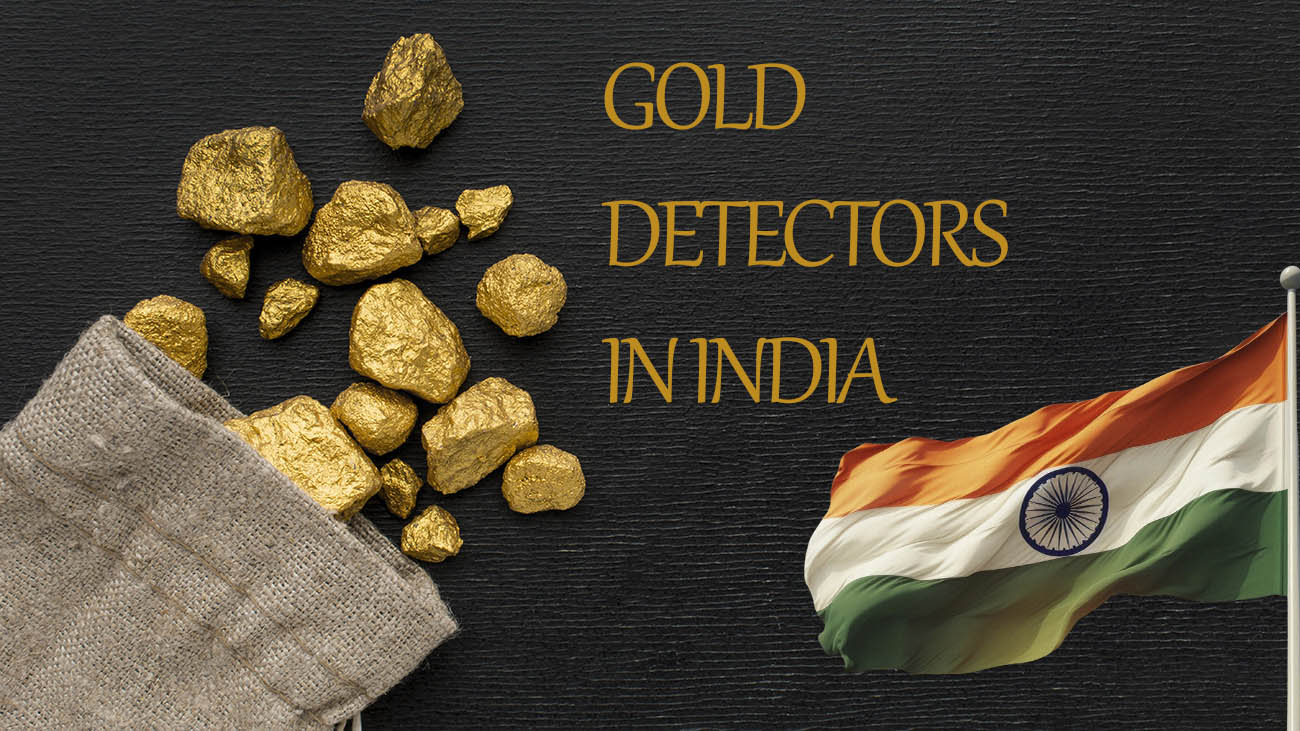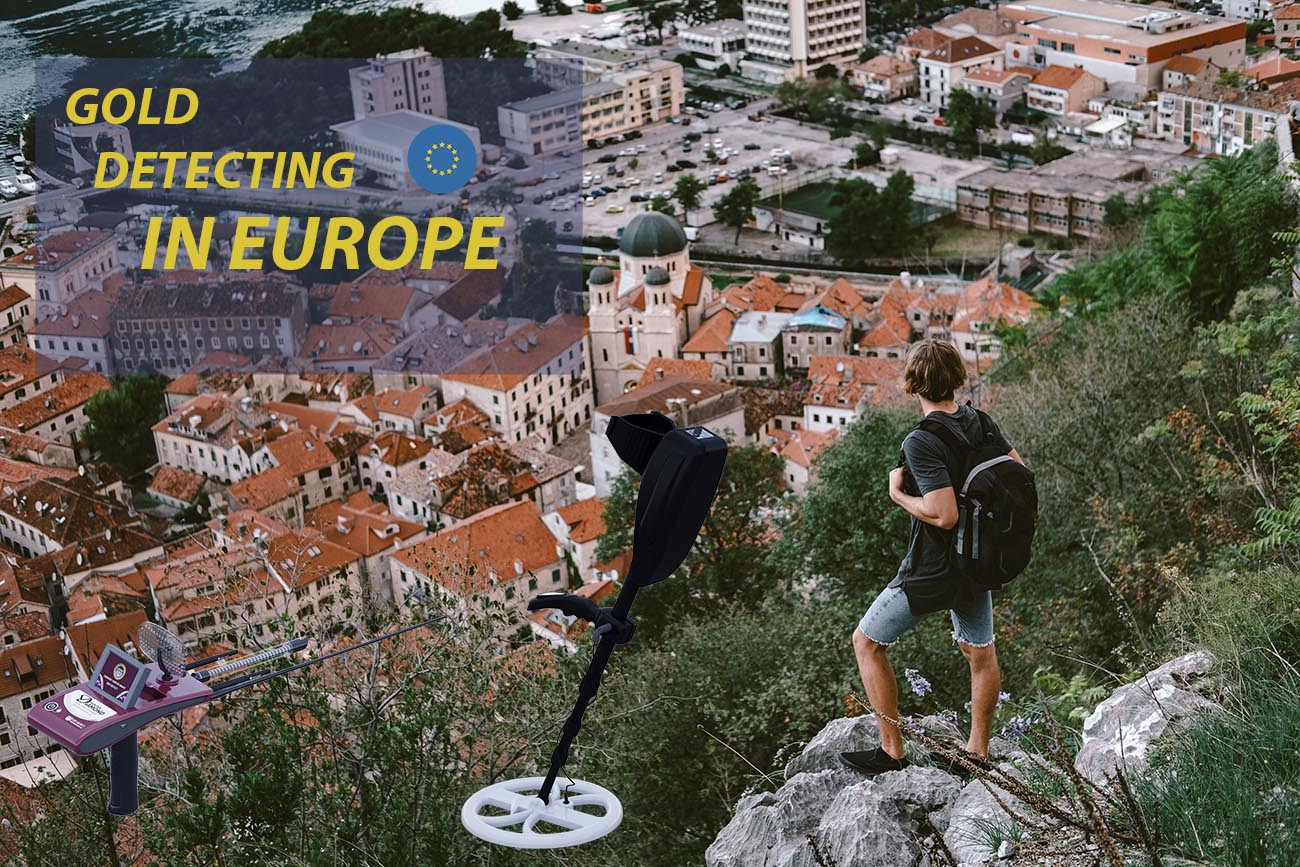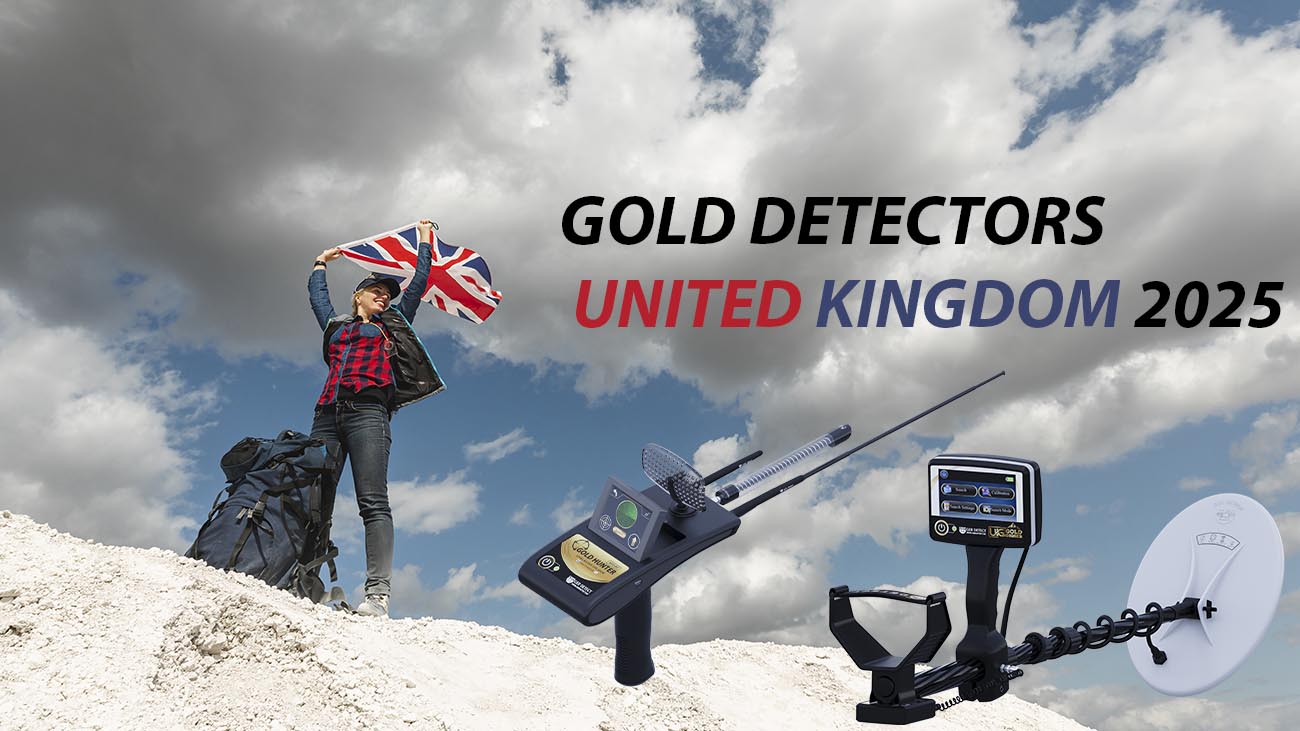Blogs
Buyers guide for metal detectors on beach
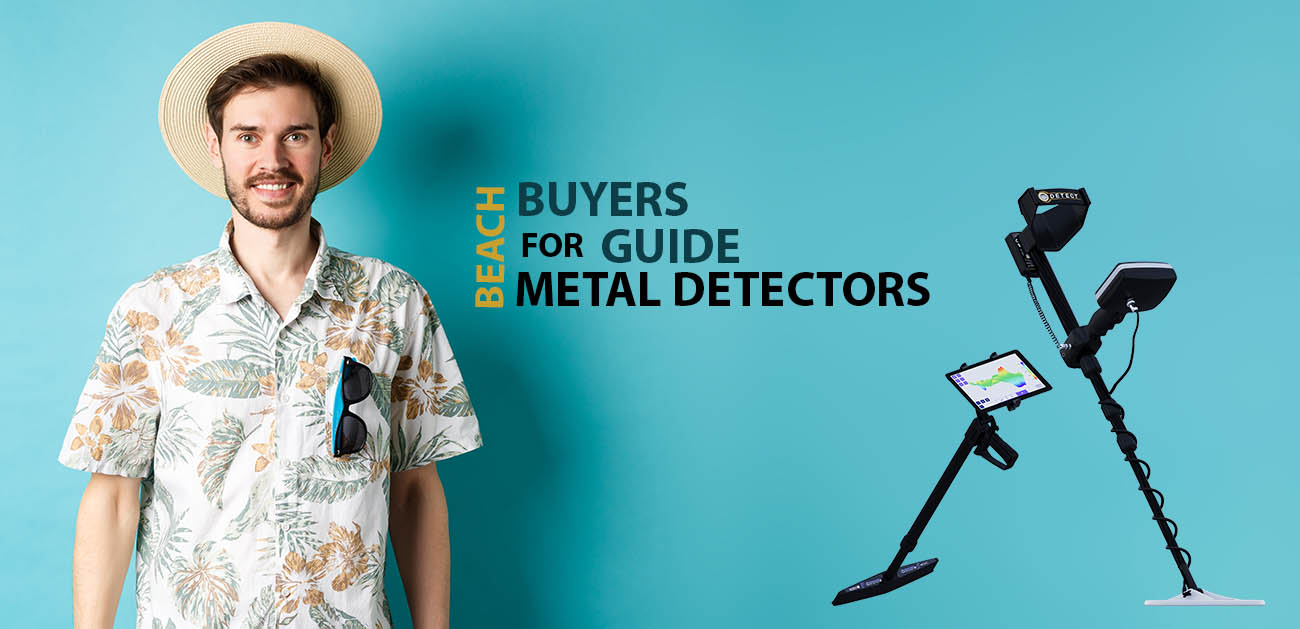
Table of Contents
Buyers guide for metal detectors on beach
The rhythmic crash of waves, the warm sand between your toes, and the thrill of discovery – beachcombing is an idyllic pastime. But what if you could transform your leisurely stroll into a treasure hunt? With the right beach metal detector, the beach can become a treasure trove of hidden riches, from lost jewelry to ancient artifacts. Whether you’re interested in metal detecting on the beach for finding lost jewelry on the beach or treasure hunting on the beach, this buyer’s guide will equip you with the knowledge to choose the perfect saltwater metal detector for your beach adventures. We’ll cover everything from sand metal detectors to the best beach metal detectors, ensuring you maximize your chances of unearthing exciting finds while beach detecting.
Most tips for beach metal detecting :
- Choose the right metal detector.
- Get the proper permits.
- Sweep the beach in a grid pattern.
- Pay attention to the signal.
- Dig carefully.
- Clean and identify your finds.
Now lets start ….
Why to metal Detect on the Beach?
Why hit the beach with a metal detector? Well, it’s basically a treasure hunt! You’re walking along, enjoying the sun and waves, but with the added excitement of potentially finding something cool – lost rings, old coins, maybe even something really old. It’s a fun way to combine relaxing at the beach with a bit of adventure, using your metal detecting skills and a good beach metal detector. Plus, the beach is always changing, so there’s always the chance of new stuff being uncovered, making it a great spot for beach detecting. Whether you’re into coin shooting, jewelry hunting, or just general treasure hunting, the beach offers a unique experience. It’s like a real-life treasure hunt, right on the sand, and a great way to put your metal detecting equipment to good use!
What Metal Detectors Do I Need for Beach Detecting?
Beach detecting, a popular form of metal detecting, presents unique challenges due to saltwater, mineralized sand (including black sand), and varying ground conditions. Choosing the right beach metal detector is crucial for success in treasure hunting on the coast. Here’s what to look for:
Understanding the Beach Environment:
Beaches can have diverse soil conditions. Some areas, especially near the waterline, have salt-saturated soil and may contain black sand, which is heavily mixed with minerals and iron. This high mineralization can significantly affect metal detector performance. The conductivity of iron in black sand can cause false signals and reduce detection depth for standard detectors. Therefore, a detector designed for these conditions is essential.
Key Features for Beach Metal Detectors:
- Waterproof Design: This is essential for any beach metal detecting. You’ll be dealing with wet sand, saltwater, and potentially shallow water, so a waterproof metal detector is a must. Some detectors are fully submersible, allowing for deeper underwater metal detecting and scuba metal detecting.
- Saltwater/Beach Mode: Saltwater and wet sand can cause false readings in standard metal detectors. A dedicated “Saltwater” or “Beach” mode helps filter out these interferences, allowing for more accurate metal detection readings and reducing false signals.
- Ground Balancing: Beaches have varying levels of mineralization, especially with the presence of black sand. A ground balance feature allows you to adjust the metal detector to these conditions, minimizing ground noise and maximizing detection depth.
Pulse Induction (PI) vs. Very Low Frequency (VLF):
While both PI metal detectors and VLF metal detectors can be used on the beach for beach hunting, Pulse Induction (PI) detectors are generally considered the best choice for saltwater metal detecting environments, especially where black sand is prevalent.
- PI Detectors: These are less affected by high mineralization, saltwater, and black sand, providing stable performance even in challenging conditions. They are excellent for finding deeper targets but typically don’t offer as much discrimination (the ability to distinguish between different types of metal). This means you might dig up more trash targets along with valuable finds and buried treasure.
- VLF Detectors: These are more common and often more affordable. Some VLF metal detectors have features that help with saltwater and mineralized ground, but they can still be affected by highly mineralized sand or black sand. They often offer better target identification and discrimination than PI detectors, helping you avoid digging up unwanted items.
Choosing the Right Detector for Your Needs:
Before buying a beach metal detector, consider the type of metal detecting you plan to do. If you want a detector that performs well in all conditions, especially in saltwater and areas with black sand, a PI detector is recommended. Reading metal detector reviews from other users on sites like Amazon can provide valuable insights and help you compare different models.

Maximize Your Beach Metal Detecting Finds:
Focus on These Target Areas
To make the most of your beach detecting trips and increase your chances of finding valuable finds, concentrate your metal detecting on these key areas:
- Towel Lines :
These are the most concentrated areas of beach activity. More people mean a higher likelihood of lost items like jewelry, coins, and other personal belongings.
- Beach Entrances/Exits:
People are often juggling bags, towels, and other gear as they enter or leave the beach. This makes these transition zones prime locations for dropped items.
- Sand Dunes:
The wind and tides constantly shift sand, burying objects in the dunes over time. This makes them a great place to find older items that have been hidden for years.
How to Metal Detect on a Beach
Beach metal detecting, a rewarding form of treasure hunting, requires a slightly different approach than other types of metal detecting due to the unique beach environment. Whether you’re a seasoned detectorist or a beginner, these tips will help you maximize your beach hunting success and find valuable finds:
Best Practices for Beach Metal Detecting:
- Move Slowly and Methodically for Optimal Metal Detection:
Covering ground quickly doesn’t guarantee more finds. Moving slowly and overlapping your sweeps allows your beach metal detector to thoroughly scan the area, increasing your detection depth and detecting even small targets. This metal detecting technique is crucial for success.
- Keep Your Coil Low and Steady for Enhanced Sensitivity:
Maintaining a consistent, low coil height (close to the sand) ensures better sensitivity to metal detector signals and reduces the chance of missing valuable finds like gold rings, silver coins, and other buried treasure. Avoid swinging the coil too high or unevenly, as this can lead to missed targets.
- Use a Grid Pattern for Comprehensive Coverage:
To ensure complete coverage during your beach detecting expeditions, use a grid pattern. This involves scanning in straight lines, then turning 90 degrees and scanning again, creating a grid. This methodical search pattern minimizes the risk of missing areas and increases your chances of finding treasure.
- Pack Essential Gear for Beach Metal Detecting:
Be prepared for your beach hunts by bringing a sturdy scoop (preferably stainless steel for saltwater metal detecting), a finds pouch or bag to hold your metal detecting finds, and a waterproof bag or container for your metal detecting equipment and valuables.
Understanding Beach Conditions and Timing for Successful Beach Hunting:
- The Changing Sands and Metal Detecting: The tide’s constant ebb and flow means the sand is always shifting. This can make it challenging to pinpoint exact locations of buried targets. Understanding beach erosion and sand movement can improve your treasure hunting strategy.
- Best Time to Detect for Maximum Finds: Low tide is the ideal time for beach metal detecting. More beach is exposed, and there’s less water to interfere with your metal detector signals. You’ll also have access to areas normally submerged, potentially uncovering hidden treasure.

Essential Metal Detector Adjustments for Beach Detecting:
- Ground Balancing for Mineralized Sand and Reduced Ground Noise: Beach sand, especially black sand, often contains high levels of minerals, which can cause false signals, ground noise, and reduced detection depth. Properly ground balancing your metal detector, especially in areas with high mineralization, is crucial for accurate target identification and minimizing interference. Consult your detector’s manual for specific instructions on ground balancing in saltwater or mineralized conditions.
Search Coils for Beach Metal Detecting
The search coil is a critical component of your beach metal detector, directly impacting your treasure hunting success. When metal detecting on the beach, selecting the right coil is essential for maximizing your finds.
Size Matters: Ideal Coil Sizes for Beach Hunting and Metal Detecting
For beach detecting and saltwater metal detecting, smaller to medium-sized search coils (typically 8-11 inches) are generally recommended. Here’s why:
- Enhanced Maneuverability in Sandy Conditions:
Smaller coils are easier to maneuver in the sand, especially in tight spaces, around rocks, and near the waterline. This is particularly beneficial when navigating uneven terrain or areas with debris.
- Reduced Fatigue During Long Beach Hunts:
Swinging a smaller coil requires less effort, reducing fatigue during extended beach hunts. This allows you to cover more ground comfortably and maintain focus on your metal detecting.
- Improved Target Separation in Trashy Areas:
Smaller coils offer better target separation in areas with a lot of trash. This means they’re more likely to isolate a desirable target, such as a gold ring, silver coin, or other valuable finds, even when it’s located near unwanted metal objects.
Best metal detectors for beach
UIG GOLD DIGGER

UIG GOLD DIGGER is a high-quality metal detecting machine.
One of the best gold-detecting equipment in the world.
Operates with seven different search systems in one device:
To detect buried gold, raw gold, treasures, gold, bronze, and silver coins underground.
TITAN GER 1000

The TITAN GER –1000 device is a complete search station with five professional and innovative search systems, specialized in detecting buried gold, buried treasures, ancient artifacts, precious metals, archaeological treasures, tunnels, passages, caves, voids, diamonds, and gemstones underground.
DEEP SEEKER

The DEEP SEEKER device is a comprehensive exploration station with five innovative systems in one device, capable of detecting gold, buried treasures, voids, ancient artifacts, precious metals, and diamonds underground
UIG WATCH Detector 3D Imaging System

The UIG Watch device operates with three advanced imaging systems:
The smallest imaging device worldwide with the ability of complete concealment.
For detecting precious metals, treasures, ancient artifacts, voids, caves, and tombs underground.
The device reaches a depth of 20 meters underground, with the ability to specify depth in meters and centimeters.
UIG detectors is here to assist you in finding your next Gold treasure and choosing the fit gold detector for you.
Register today to receive a free consultation, and our specialist will help you find your next gold detector.
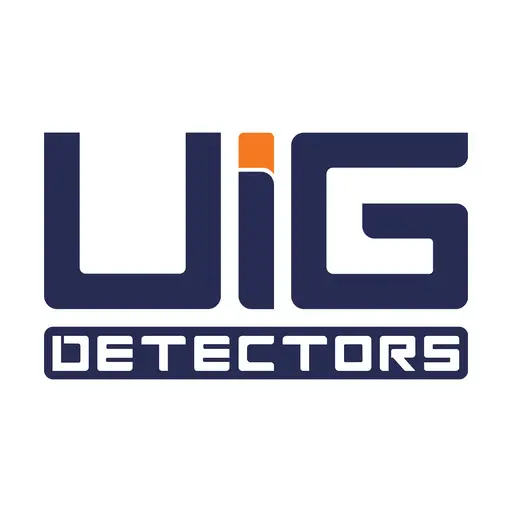
Other Artcils to read
FAQ
Best beaches for metal detecting?
Public beaches, beaches near boardwalks, beaches with concessions, and historically significant beaches.
Safety tips for beach metal detecting?
Stay hydrated, wear sunscreen, be aware of surroundings, respect others, and follow local regulations.

